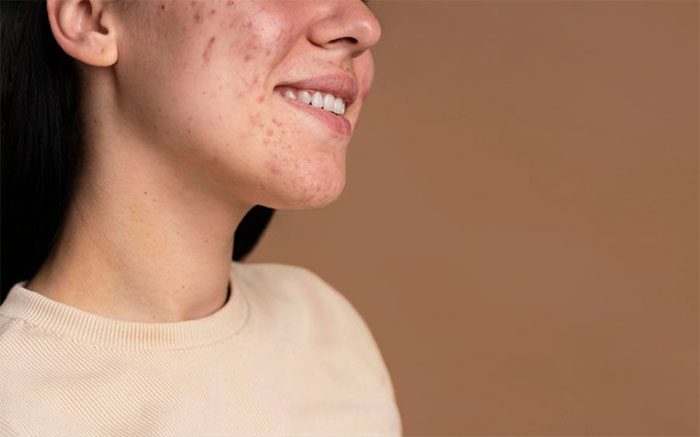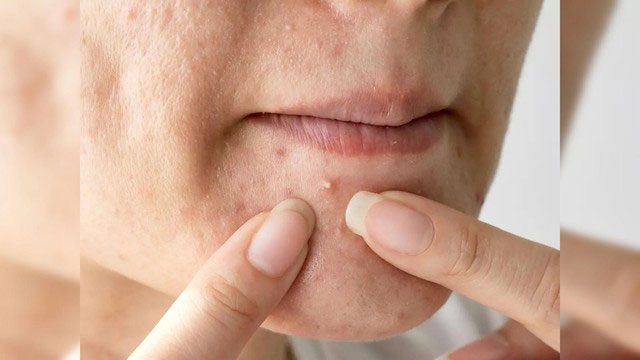Acne – a persistent and haunting issue for many teenagers – is often seen as the enemy of beauty. However, recent studies have revealed that individuals who experienced acne during their youth may have a biological advantage, particularly regarding the aging process.
Research on Telomeres and Their Connection to Acne
According to a study published in 2016 by researchers at King’s College London, individuals who had acne in their youth have longer telomeres compared to those without acne. Telomeres are short DNA sequences at the ends of chromosomes that play a crucial role in protecting chromosomes from damage and allowing cells to divide normally. Longer telomeres contribute to the longevity of cells and slow down the aging process.
This study analyzed telomere length in 1,205 twin women, including 293 who had experienced acne. The results showed that those with a history of acne had longer telomeres compared to the control group without acne. This indicates a correlation between acne and the ability to resist aging.

Individuals who had acne have longer telomeres compared to those without acne.
The Role of Telomeres in the Aging Process
To better understand the impact of telomeres on aging, think of them as the plastic tips at the ends of shoelaces – they protect the laces from fraying. Similarly, telomeres protect our chromosomes during cell division. However, each time a cell divides, telomeres gradually shorten. When telomeres become too short, chromosomes lose their protection, leading to damage and cell death, thereby accelerating the aging process.
In some cells, an enzyme called telomerase can extend telomeres. However, telomerase is not active in most cells of the body, except for a few, such as reproductive cells. This leads to a gradual depletion of telomere length over time and the aging process.
The Connection Between Acne and Telomere Length
The relationship between acne and longer telomeres remains a mystery for scientists. However, one hypothesis put forward in the study suggests that the p53 gene pathway, which regulates the process of “cell death” – also known as apoptosis – appears to be less active in individuals with acne. Reduced activity of this pathway may help cells survive longer, thus extending cellular lifespan.
In fact, dermatologists have long observed that individuals who experienced acne tend to show signs of aging later than those with flawless skin from a young age. This includes the appearance of wrinkles, thinning skin, and loss of elasticity occurring later. One reason may be due to increased oil production in the skin of acne sufferers, which helps retain moisture and protect the skin from environmental damage. However, the 2016 study has opened a new avenue, suggesting a potentially deeper connection between experiencing acne and the aging process.

Longer telomeres help extend cell lifespan and slow down the aging process.
Acne and Its Potential Benefits
While the findings from the 2016 study may provide some relief to those who have dealt with acne, caution is still needed. This research has not yet been followed by many other studies to reinforce its conclusions. This means that more research is needed to better understand the connection between acne and telomere length, as well as its impact on the aging process.
Additionally, telomeres are not the only factor influencing aging. Other factors such as lifestyle, diet, sun exposure, and genetics also play significant roles. Therefore, while individuals who had acne may have longer telomeres and fewer wrinkles in the future, maintaining a healthy lifestyle remains crucial for preserving a youthful appearance and overall health.

Maintaining a healthy lifestyle is essential for preserving a youthful appearance.
Studies Related to Telomeres and Aging
Not only acne, but several other studies have indicated that different demographic groups may possess varying telomere lengths, which could affect their aging processes. For instance, a 2019 study in the United States showed that individuals of color had telomeres that were 4% longer than those of white individuals, which may contribute to slower aging. Another research study in 2016 also noted that individuals of color and those of Hispanic origin had longer telomeres compared to white individuals.
Genetic factors, melanin pigmentation (which protects skin from sun exposure), and other environmental factors may also help explain why some groups appear younger than their actual age. However, it is essential to remember that telomere length is only part of the story. A healthy lifestyle, balanced nutrition, regular physical activity, and careful skin care can also contribute to longevity and slow the aging process.

Telomeres are not the only factor influencing aging.
Although acne has long been a concern for many, new research brings a glimmer of hope for those who have faced this issue. Longer telomeres in individuals who experienced acne may help them maintain youthful skin and fewer wrinkles as they age. However, more studies are needed to confirm these results and to gain a deeper understanding of the underlying mechanisms.
In the meantime, proper skin care and maintaining a healthy lifestyle remain the best ways to ensure your health and youthful appearance. And who knows? Perhaps one day, acne will no longer be regarded as the enemy of beauty but rather a sign of aging with fewer wrinkles!




















































